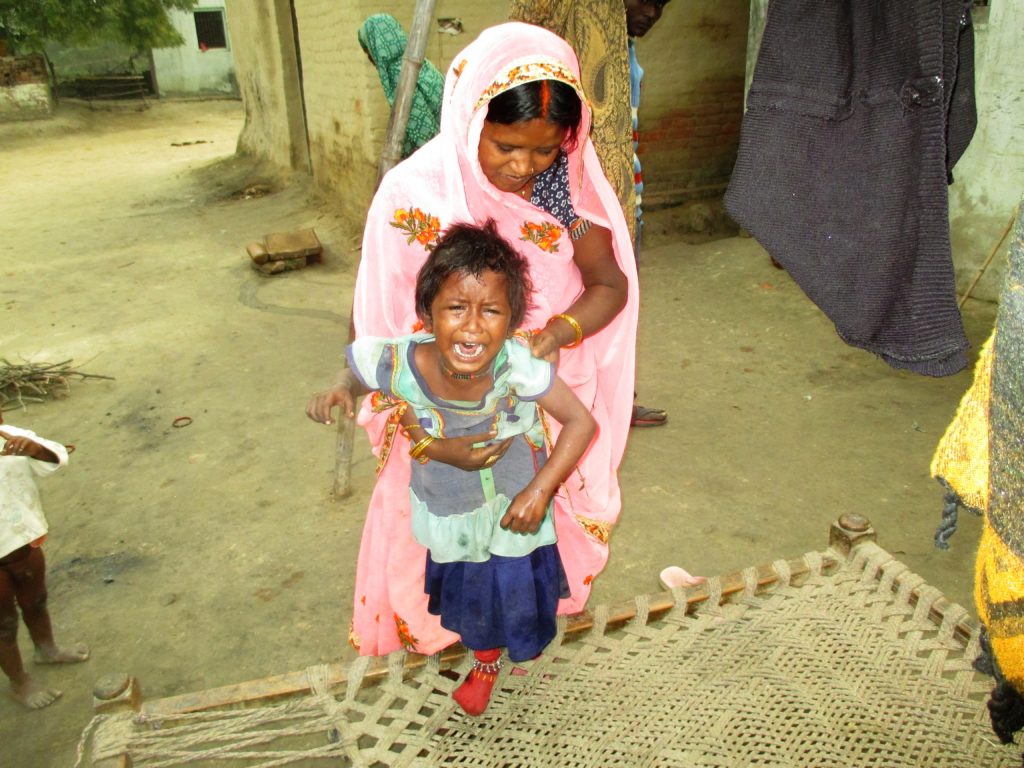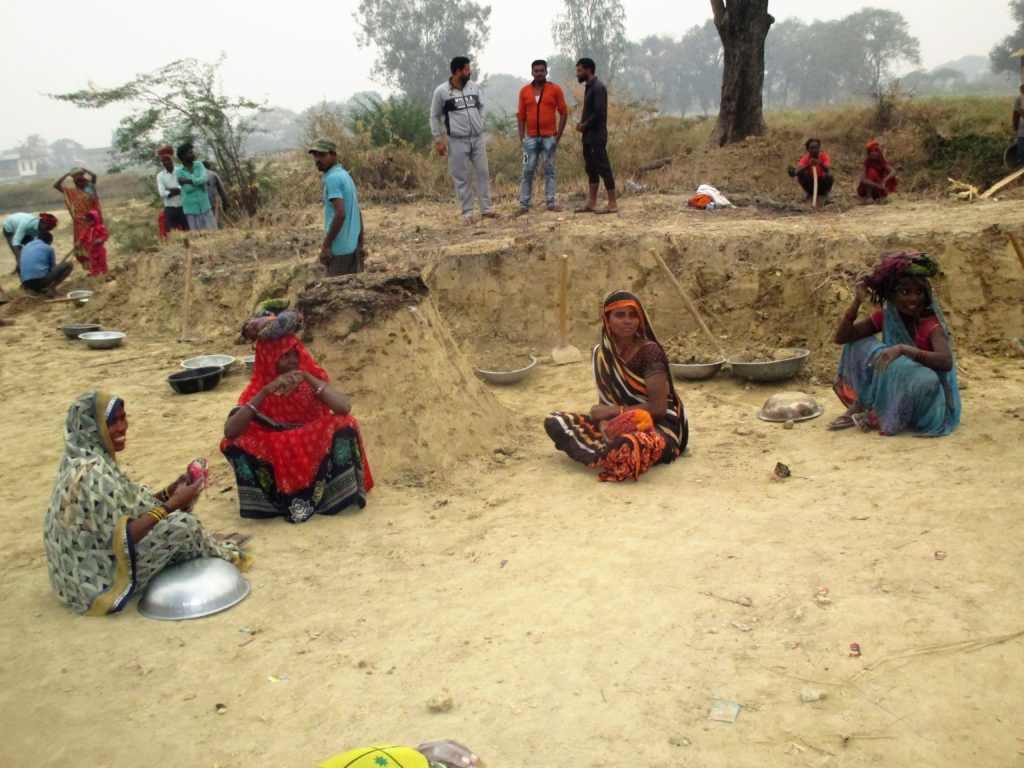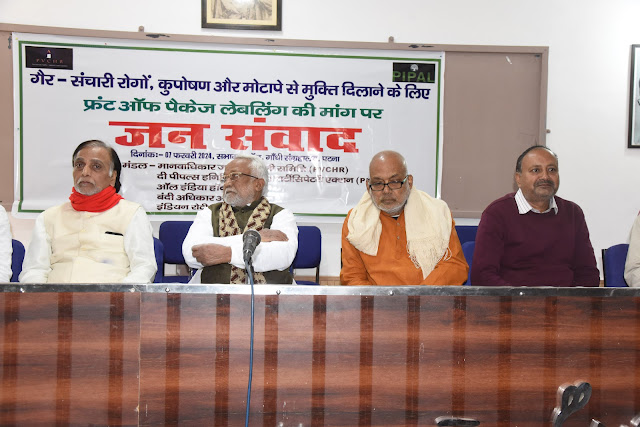Double burden of malnutrition worries young mothers in Musahar villages
Double burden of malnutrition worries young mothers in Musahar villages
COVID-19’s impact on child survival, health, and nutrition has been extensive due to the failure of the economic machinery. Children of Musahar community, the most marginalized among dalits, eat cheap packaged foods including crunchy, chips, and cream biscuits in Annai and neighbouring villages of Badagaon administrative block of Varanasi district which have high salt and sugar levels. Unregulated and ultra-processed packaged foods with high salt, sugar, and fat levels have contributed to this double burden of malnutrition and increased non-communicable disease (NCD) susceptibility. Young mothers are worried as their children’s addiction to packaged foods causes liver ailments, causing their brains to fail, dumbness, frustration, and depression.
In Musahar hamlet of Annai village comprising of 56 families, who worked in brick kilns in the condition of servitude, now work as a sharecroppers. Due to interventions by social action groups, those who were derided as rat catchers and the scourge of untouchability has been so pervasive, that now there is perceptible change, as they own 4 biswa (5400 sq. ft.) of land.

25 year old Savita, who has 2-year old son and a 5 year old daughter Anshika, said, “My daughter used to cry and throw tantrums we were forced to give crunchy. Her paternal and maternal grandmothers, to stop her incessant crying used to feed her with 14 packets of crunchy e a day. Doctors at PHC advised me to stop her feeding with crunchy. She now can’t even talk and always clings to the lap of her grandmother.”
Anshika was severely malnourished and developed chronic fever. Addiction to crunchyaffected the functionality of her brain and earlier she used to speak but now she suffers from dumbness and cries throughout the day. Confirms her grandmother, Shama, “She was severely malnourished when she was born and feeding with excess of crunchy has physically and mentally incapacitated her. She cries throughout the day and never gets down from my lap only when I give her biscuit or toffee. I know it’s not good but what to do? ”
Need for a strong FoPL regime as a policy tool to address malnutrition in post-COVID society
Seeing Anshika’s condition, Savita has kept her 2 year old son away from the packaged foods, be it crunchy, chips or biscuits. “My son needs protein and fat so I give him a egg a day. He was also born underweight but now he has recovered.”
27 year old Santara said, “My younger sister-in-law (devrani) daily used to feed 10 packets of crunchy to her one and half year old son Akash. His daily consumption of crunchy damaged his liver and he suffered from chronic diarrhoea and he died.”
According to the Lancet report published in December 16, 2019, the double burden of malnutrition is the coexistence of over nutrition (overweight and obesity) alongside undernutrition (stunting and wasting), at all levels of the population—country, city, community, household, and individual.” This report explores how this coexistence is affecting low-income and middle-income countries.
While discussing about the packed foods and its harmful effects to the children, Dr Arvind Pratap, a medical practitioner and a MBBS from Belarusian State Medical University specialises in child health and nutrition said:
None of the packed foods has the description of the quantity of sugar, salt, fat or calories in it. Children in Musahar villages of Badagaon block, which I visit regularly suffer from severe malnutrition. Children here consume crunchy, chips or cream biscuits packed in locally manufactured transparent polybags, which are more dangerous. If malnourished children consume crunchy, chips or cream biscuits with high levels of salt, sugar and fat, then they are pushing themselves in the double burden of malnutrition.
However, in a report India: Health of the Nation’s States by Ministry of Health and Family Welfare (MOHFW), Government of India (GOI), it is found that there is increase in the contribution of NCDs from 30% of the total disease burden- ‘disability-adjusted life years’ (DALYs) in 1990 to 55% in 2016 and also an increase in proportion of deaths due to NCDs (among all deaths) from 37% in 1990 to 61% in 2016. This shows a rapid epidemiological transition with a shift in disease burden to NCDs.
In 2008, NCDs accounted for 5.2 million deaths in India. A rising trend in the burden of NCDs is expected in the years ahead.

If malnourished children receive inadequate nutrition early in their life, are more pronounced compared to such children who receive adequate nutrition, due to their weak immune system. The stunted children, later in the life, if consume regularly unregulated ultra-processed food and drinks laced with high fat, salt and sugar, as replacement of common nutritious cook food, are more susceptible to obesity and later may face one or other form of non-communicable cardio-vascular diseases like hypertension, diabetes and heart ailments.
In this condition, there should be urgent policy action on Front of Packet Labelling (FOPL) regulations, which facilitate and in fact empower consumers taking healthier choices while purchasing package food products from the store. Often, a consumer takes less than 10 seconds to select package food products from store—not enough time to read and interpret many complicated nutrition facts panels, added Dr Arvind Pratap, who specialises in child health and nutrition.
Shruti Nagvanshi, Convenor, Savitri Bai Mahila Panchayat and International Peace Laureate, 2021, who works among the Musahar women said, ”During the pandemic, doctors, health experts and nurses recommended to eat healthy nutritious and homemade food. We moved in the Musahar hamlets with a medical team in Musahar hamlets and advised them to eat healthy food, green vegetables and proteins, like egg they say they cannot afford it. We have found that daily they spend Rs. 20-30 on packed food items. They are spending on things like crunchy, chips, cream biscuits, mixtures packed items manufactured locally. Let’s persuade the Government to implement FOPL otherwise an army of diseased people would emerge consuming packed foods. Let a new beginning start with FOPL regulations as it happened in Chile, Brazil, Mexico or Peru.”




Comments
Post a Comment